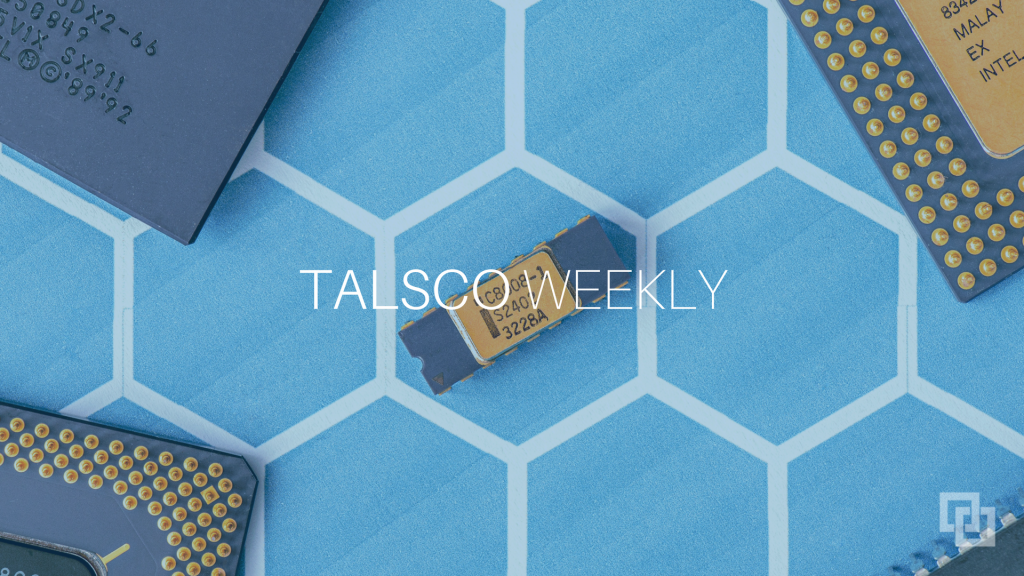What does Industry 4.0 mean?
It is the intersection of IoT, data, analytics, AI, and machine learning. It sounds complex, and it is.
And its the future of manufacturing. McKinsey & Company describes this as Manufacturing’s Next Act.
The companies that are ready for the “fourth industrial revolution” or at least parts of it need to become familiar with what it all means.
You might ask what does this have to do with the IBM i?
A lot, because the IBM i has a large manufacturing footprint running ERP systems such as, JD Edwards, Infor XA (Mapics), Infor LX (BPCS) just to name a few.
At many IBM i (AS/400) shops the challenge will be upgrading legacy systems to take advantage of the benefits that Industry 4.0 can offer.
Not sure what the benefits are? Check out this model of a factory floor that IBM has put together.
This will open up countless new career tracks and opportunities for those willing to take advantage of them.
It will be interesting how this all plays out but what can’t be denied is that every domain area within a company will be impacted to some degree.
Find out more about Industry 4.0 and how it relates to the IBM i in this issue.
News
Manufacturing and Industry 4.0
Make no mistake: the manufacturing sector is in the midst of a sea change, though its final outcome is far from certain.
Find out how Industry 4.0 will reduce manufacturing costs
Industry 4.0 is gaining steam, where “industrial internet of things (IIoT) smart devices and machines communicate and interact to make improvements to supply chains, operations and decision-making.” Its not hard to see how this can be beneficial.
Learning
You don’t need to be a Data Scientist to be in Data Science
Data Science is part of Industry 4.0 and it’s not just for PhDs. As this article suggests, the best candidates are domain experts. In fact, I know an RPG programmer is going down this path by pursuing a degree in Data Science. By coincidence this “jibes with a recent report commissioned by IBM that finds a big shortage of people with data science and analytics (DSA) skills.”
The AS/400 might be old but the IBM i is not
This article plays nicely into this weeks issue regarding Industry 4.0. Dan Burger interviews Paul Tuohy and Mike Pavlak, Fresche Legacy and they discuss the perception and reality of the IBM i. The perception that many have is wrong because the technology that makes up the IBM i is state of the art and “can do modern computing workloads.” It’s these computing workloads that will be required of IoT, big data, AI and machine learning technologies. To get there, training is required, so head on down to RPG & DB2 Summit in Dallas, TX on March 22, 2018.
Leadership
How Executives view Industry 4.0
Good news. Executives “believe that Industry 4.0 will lead to more social and economic equality and stability. And 61% of executives across the globe believe that the majority of their workforce can be trained to have the skills they’ll require for this future society.”
Leading the transformation to Industry 4.0
Industry 4.0 for manufacturing means different things around the globe. In the US “the emphasis is more on the role of big data in effecting collaboration, and Industry 4.0 has become synonymous with the Industrial Internet of Things (IIoT)”. While in Europe, it “is viewed as the route that will lead to the emergence of ‘smart industry’; where people, devices, objects, and systems combine to form dynamic, self-organizing networks of production”.
Career
This is how Industry 4.0 will change your job
History repeats itself. In the past hundred years, there have been major shifts in the economy and what people do for work. The industrial revolution brought workers from the fields to the factories. Industrial Automation has transitioned workers away from the factory floor. And future automation, Industry 4.0, will once again change what people do for a living.
But like before this does not mean there will be no jobs. It just means people will be doing different things. The one thing is for sure, “there’s reason to start preparing now for your job of the future.”
Teaching RPG to IBM i Developers is the future
A key component in modernizing IBM i shops, and thus helping companies realize the benefits of Industry 4.0, revolves around teaching and retraining RPG Developers. As Steve Will writes in his blog post, “our IBM i strategy has been to transform RPG into a modern programming language that can be learned easily by non-RPG developers.”
Share
Help get the truth out. Please use the social media buttons to share this issue of Talsco Weekly. Thank you!
